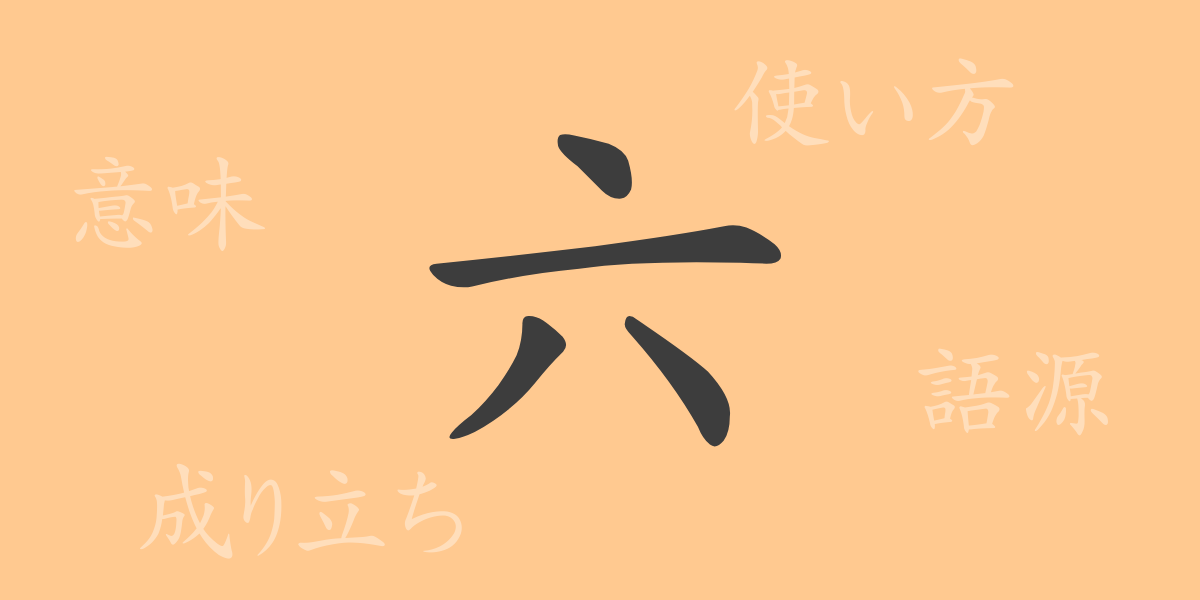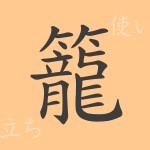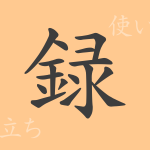In Japanese culture and language, kanji (漢字, Chinese characters) are indispensable elements. Among them, the kanji “六” (ろく, roku) is one of the basic characters representing numbers and is used in various aspects of daily life. In this article, we will focus on the kanji “六” (ろく, roku), exploring its origin, meaning, usage, as well as idioms and proverbs that include it, delving into its charm.
Origin of 六 (ろく, Roku)
The kanji “六” (ろく, roku) was created to represent the sixth number in the ancient Chinese numerical system. It is believed to have derived from pictographs, expressing the concept of the number six by stacking six lines. Over time, this representation evolved into a more simplified form, settling into the current shape of “六” (ろく, roku).
Meaning and Usage of 六 (ろく, Roku)
The kanji “六” (ろく, roku) represents the number 6 and is used when counting numbers or indicating order. Additionally, “六” (ろく, roku) is used in traditional Japanese color names and in the term “六道” (ろくどう, rokudō), which refers to the six realms in Buddhism. Furthermore, in the Japanese calendar, there is the concept of “六曜” (ろくよう, rokuyō), where each day has a specific meaning.
Reading, Stroke Count, and Radical of 六 (ろく, Roku)
The kanji “六” (ろく, roku) is easy for beginners to remember due to its simple structure.
- Reading: The on’yomi (音読み, Chinese reading) is “ロク” (ろく, roku), and the kun’yomi (訓読み, Japanese reading) is “む” (mu), “むつ” (mutsu), or “むっつ” (muttsu).
- Stroke Count: “六” (ろく, roku) consists of 4 strokes.
- Radical: The radical of “六” (ろく, roku) is “八部” (はちぶ, hachibu).
Idioms, Proverbs, and Phrases Including 六 (ろく, Roku) and Their Meanings
In Japanese, there are many idioms, proverbs, and phrases that include “六” (ろく, roku). For example, “六根清浄” (ろっこんしょうじょう, rokkon shōjō) is a Buddhist term referring to a state where all sensory organs are pure. “六法全書” (ろっぽうぜんしょ, roppō zensho) refers to the compendium of Japanese laws, an essential book for legal professionals. The idiom “六面倒臭い” (ろくめんどうくさい, roku mendōkusai) means something that is troublesome in every aspect.
Conclusion About 六 (ろく, Roku)
Through this article, we hope you have gained an understanding that the kanji “六” (ろく, roku) holds a deep historical and cultural significance beyond just representing a number. In Japanese, “六” (ろく, roku) is used in various ways, reflecting the culture and philosophy behind the words. By knowing the examples and idioms that include “六” (ろく, roku), you can deepen your understanding of the Japanese language, appreciating the nuances that might otherwise be overlooked in daily life.

























